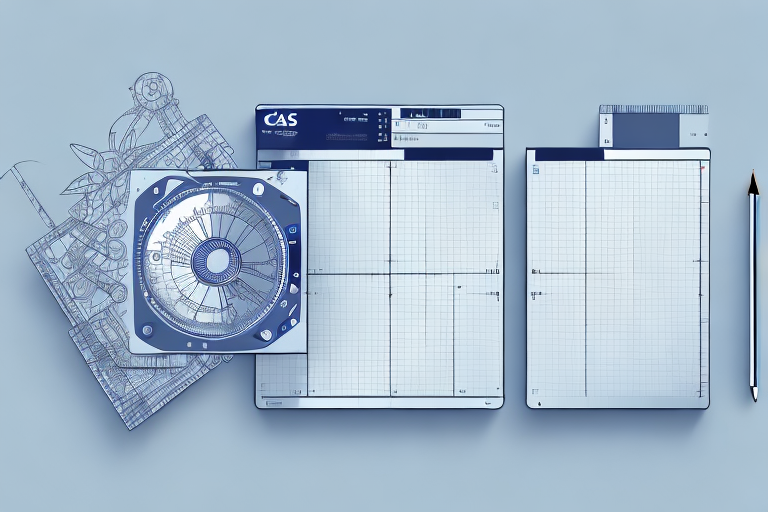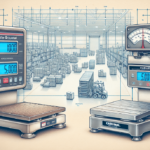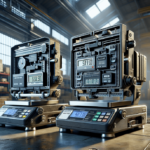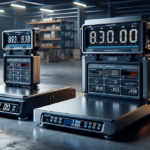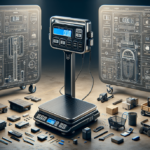CAS RW-L Series vs Salter Brecknell PS1000: An In-Depth Comparison
If you're in the market for a reliable weighing scale, you might have come across the CAS RW-L Series and the Salter Brecknell PS1000. Both are excellent options, but which one is better suited for your specific needs? In this article, we'll compare the features, performance, durability, user-friendliness, maintenance, and cost of both scales to help you make an informed decision.
Why Comparing Weighing Scales Matters
Weighing scales play a critical role in various industries, including healthcare, food, retail, and manufacturing. According to a report by IBISWorld, the global market for weighing equipment is expected to grow steadily, underscoring the importance of selecting the right scale for operational efficiency and compliance.
The accuracy and precision of a weighing scale can significantly impact operational outcomes, especially in sectors where regulatory compliance is essential. Choosing the right scale can lead to substantial savings by reducing maintenance and repair costs while extending the equipment's lifespan. Additionally, a user-friendly scale can enhance productivity and minimize the risk of user errors.
When comparing weighing scales, it's crucial to consider the specific needs of your industry and operations. For instance, the food industry may prioritize easy-to-clean surfaces and high accuracy for measuring small quantities, whereas the manufacturing sector might require scales that can handle heavy loads and possess a durable design. By evaluating different weighing scales and their features, you can select the one that best fits your operational requirements and budget.
Product Features and Specifications
CAS RW-L Series
The CAS RW-L Series is renowned for its high accuracy and durability. Available in various platform sizes, it boasts a maximum weight capacity of 300kg. The scale offers flexible power options, including an AC adapter or a rechargeable battery that lasts up to 100 hours on a single charge.
Key features include a bright LCD display with backlighting for enhanced readability, a built-in RS-232 interface for seamless connectivity to external devices, and functions such as tare, auto-zero tracking, and automatic power-off to conserve energy. Additionally, it is equipped with overload protection and a low battery indicator.
Constructed from stainless steel, the RW-L Series is dust-proof and waterproof, making it suitable for harsh environments. The user-friendly interface features a simple keypad for taring, zeroing, and unit switching, displaying weight in kilograms, pounds, or ounces.
Safety is prioritized with non-slip feet to prevent sliding during use, rounded platform edges to avoid injuries, and a locking mechanism to secure the platform during transport or storage.
Salter Brecknell PS1000
The Salter Brecknell PS1000 is a high-capacity weighing scale designed to handle up to 1000kg. Its large steel platform accommodates sizable items, making it ideal for industrial settings.
Powered by an AC adapter or a rechargeable battery lasting up to 20 hours per charge, the PS1000 features a large LCD display with backlighting for clear readability. It includes a built-in RS-232 interface, tare function, auto-zero tracking, and automatic power-off features.
Durable steel construction and a non-slip surface enhance the PS1000's robustness and safety. Additionally, it comes with a one-year warranty, providing extra peace of mind for users.
The PS1000's user-friendly interface allows for easy operation, making it suitable for warehouses, factories, and other industrial environments where heavy items need to be weighed accurately and efficiently.
Performance and Durability Comparison
Accuracy and Precision
When comparing accuracy and precision, the CAS RW-L Series outperforms the PS1000 with a resolution of up to 1/30,000, compared to the PS1000's 1/3,000. This higher resolution makes the RW-L Series ideal for operations where precise measurements are critical, such as in the food and healthcare industries.
Conversely, the PS1000's higher weight capacity makes it more suitable for industries like manufacturing and logistics, where handling heavier loads is essential.
The RW-L Series also features advanced functionalities like automatic zero tracking and tare weight memory, enhancing operational efficiency across various settings.
With its rugged stainless steel construction, the RW-L Series ensures consistent and accurate weight measurements over prolonged use, making it a dependable choice for businesses requiring long-term reliability.
Durability and Build Quality
Both scales are designed for durability, but they differ in their construction materials. The CAS RW-L Series features a stainless steel construction, making it highly resistant to dust, water, and chemicals. This makes it particularly suitable for harsh and demanding environments.
On the other hand, the Salter Brecknell PS1000 is built with sturdy steel, which, while robust, is more susceptible to rust over time. The PS1000's non-slip surface adds an extra layer of safety during use.
Overall, the RW-L Series offers superior durability for environments exposed to harsh conditions, whereas the PS1000 provides reliable performance in less extreme settings.
User-Friendliness and Maintenance
Display and Controls
Both scales prioritize user-friendliness with clear displays and intuitive controls. The CAS RW-L Series features a brighter LCD display with backlighting, enhancing visibility in low-light conditions.
The Salter Brecknell PS1000 offers a larger platform and a non-slip surface, making it easier to place and stabilize larger items. Both models include essential functions like tare, auto-zero tracking, and automatic power-off.
Additionally, the RW-L Series provides greater connectivity options with its built-in RS-232 interface, allowing seamless integration with external devices and software systems.
Maintenance and Repair
Proper maintenance is crucial for both the CAS RW-L Series and the Salter Brecknell PS1000 to ensure optimal performance. Regular cleaning helps prevent damage to internal components, extending the scales' lifespan.
The RW-L Series boasts a longer battery life of up to 100 hours, reducing the frequency and cost of battery replacements. In contrast, the PS1000's battery life of 20 hours necessitates more frequent replacements, potentially increasing long-term maintenance costs.
According to industry standards, regular calibration and servicing can further enhance the longevity and accuracy of weighing scales. It's advisable to follow the manufacturer's maintenance guidelines and consult with professional service providers when needed.
Cost Comparison: Initial Purchase vs Long-Term Value
In terms of cost, the Salter Brecknell PS1000 is more affordable upfront compared to the CAS RW-L Series. However, the RW-L Series offers greater long-term value through its higher accuracy, longer battery life, and more extensive connectivity options.
While the PS1000's lower initial cost may be appealing, the expenses associated with frequent battery replacements and its lower precision could result in higher total costs over time.
Investing in a scale that offers durability and advanced features can lead to cost savings in the long run by minimizing maintenance needs and ensuring consistent performance.
Pros and Cons of the CAS RW-L Series
Advantages:
- Higher accuracy and precision with a resolution of up to 1/30,000
- Longer battery life of up to 100 hours
- Wide range of connectivity options
- Resistant to dust, water, and chemicals, suitable for harsh environments
- User-friendly interface with large, easy-to-read display and simple navigation buttons
- Built-in memory function for storing frequently used settings
Disadvantages:
- Higher initial cost compared to the PS1000
- Lower weight capacity, maximum of 300kg
- Smaller platform size, which may not accommodate larger items
- Interface may lack advanced features for some users
Pros and Cons of the Salter Brecknell PS1000
Advantages:
- Higher weight capacity, up to 1000kg
- Larger platform suitable for bigger items
- More budget-friendly initial purchase price
- Simple interface with easy-to-use controls
- Includes a tare function for bulk weighing
Disadvantages:
- Lower accuracy and precision with a resolution of up to 1/3,000
- Shorter battery life, lasting only 20 hours per charge
- Less robust construction, more prone to rust
- Lacks advanced connectivity options like Bluetooth or Wi-Fi
- Limited decimal places, unsuitable for high-precision applications
Buying Guide: Which Weighing Scale Should You Choose?
Choosing the right weighing scale involves evaluating several factors, including accuracy, weight capacity, durability, user-friendliness, and cost. Here are some considerations to guide your decision:
- Accuracy and Precision: If your operations require highly precise measurements, the CAS RW-L Series is the superior choice.
- Weight Capacity: For applications involving heavy loads, the Salter Brecknell PS1000’s higher capacity may be more appropriate.
- Environment: In harsh environments exposed to moisture and chemicals, the refractory features of the RW-L Series provide an advantage.
- Budget: If budget constraints are a primary concern, the PS1000 offers a cost-effective solution without sacrificing essential features.
- Connectivity Needs: For seamless integration with other systems, the RW-L Series’s advanced connectivity options are beneficial.
Assess the specific requirements of your industry and operations to select the scale that delivers the most value and efficiency for your business.
Conclusion: Choosing Between CAS RW-L Series and Salter Brecknell PS1000
Both the CAS RW-L Series and the Salter Brecknell PS1000 are excellent weighing scales with distinct advantages. The best choice depends on your specific operational needs:
- Choose the CAS RW-L Series if you require high accuracy and precision, longer battery life, and robust connectivity options. Its durable stainless steel construction makes it ideal for harsh environments.
- Opt for the Salter Brecknell PS1000 if you need a higher weight capacity and a more budget-friendly option. Its larger platform is suitable for industrial settings where handling heavy or large items is necessary.
Consider the long-term value, specific requirements of your industry, and your budget to make the most informed and beneficial choice for your weighing scale needs.















